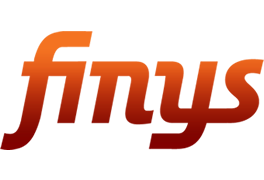Mind Your Ps and Queues
Whenever someone refers to the proverbial Three Ps, they’re typically referring to the prevailing wisdom about the way in which businesses should value their assets. In that context, they’re referring to:
- People
- Process
- Product.
In that context, we agree with those Three Ps. But some others are worthy of consideration. We offer them here for your deliberation.
Are You Ready?
As the saying goes, life is what happens to us while we’re making other plans. True. But that doesn’t negate the necessity of planning. Another notion suggests that plans are made to be changed. That’s true, too. But that doesn’t nullify the importance of planning, either.
It’s been several years now since we got out of the prediction business. Nevertheless, we’re pretty comfortable suggesting that, in the absence of sure things, these Three Ps will help keep you out of all but the most unavoidable jams:
- Planning. No plan will get you from A to Z without fail. But a plan that leaves room for life (reality) and contingencies (the unexpected) will be malleable enough to succeed more times than not.
- Preparation. As a subset of planning, mapping out your steps and forecasting potential contingencies will position you optimally to respond to whatever transpires.
- Progress. If you go about planning and preparation conscientiously and thoroughly, you’ll give yourself the best shot at making progress.
Henry Ford once said, “Thinking is the hardest work there is, which is probably the reason why so few engage in it.” While he may have been a bit condescending, he may have been right. And if he was right about thinking, planning, preparation, and progress come in right behind it.
The Other IQ
Similar to the Three Ps, when most people talk about IQ, they’re referring to the Intelligence Quotient. And just like our own Three Ps, we think there’s another IQ: the Ingenuity Queue.
Samuel Goldwyn is reputed to have said, “The harder I work, the luckier I get.” He knew the fallacy of overnight successes and get-rich-quick schemes. He also knew the value of planning and the need to be imaginative and responsive to change and changing conditions.
And so it is with system replacements and IT projects. No one ever wants to do them. Everyone has to plan for them.
If you mind your Ps and Queues, you’ll be ready when the time comes.

